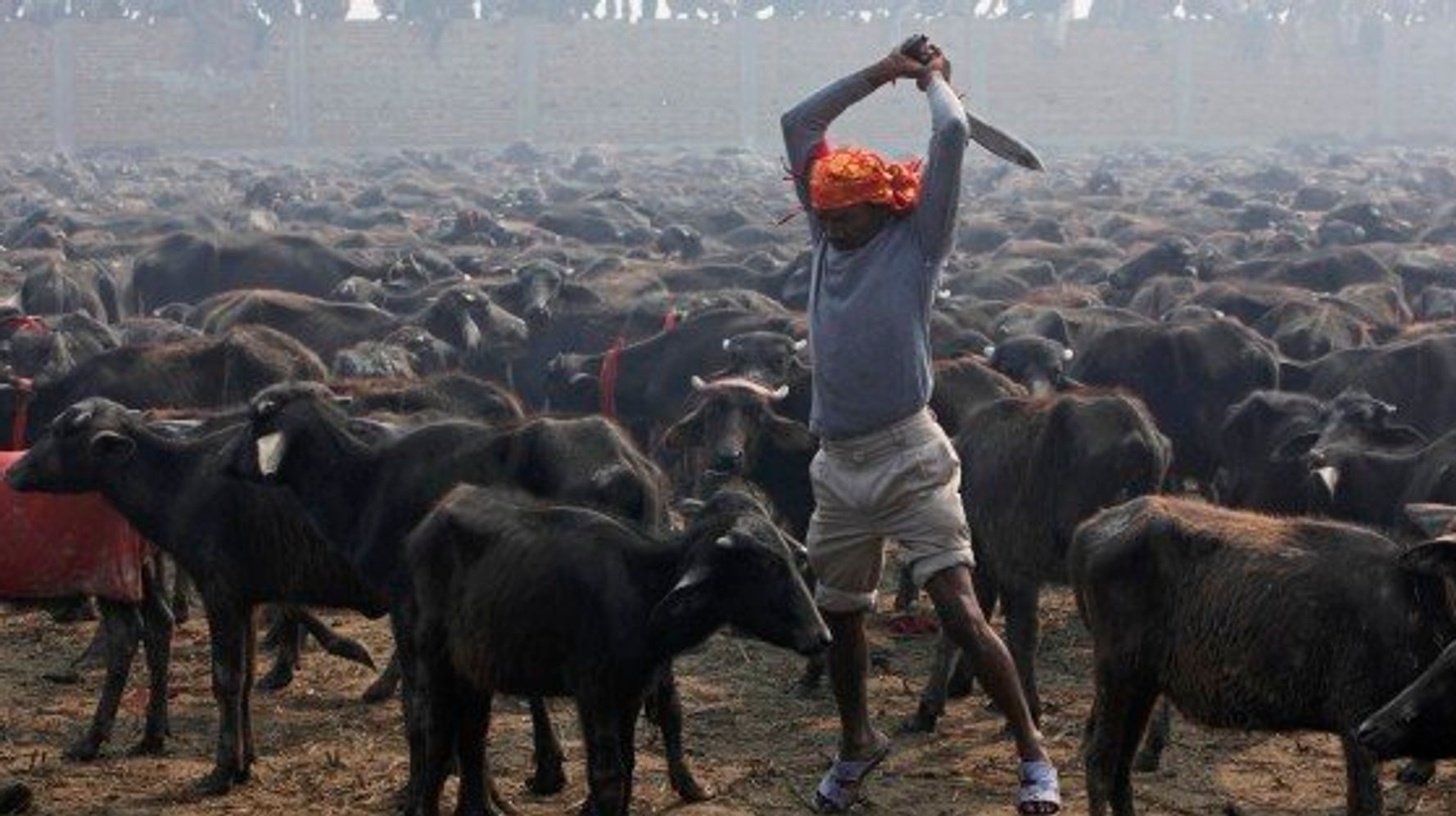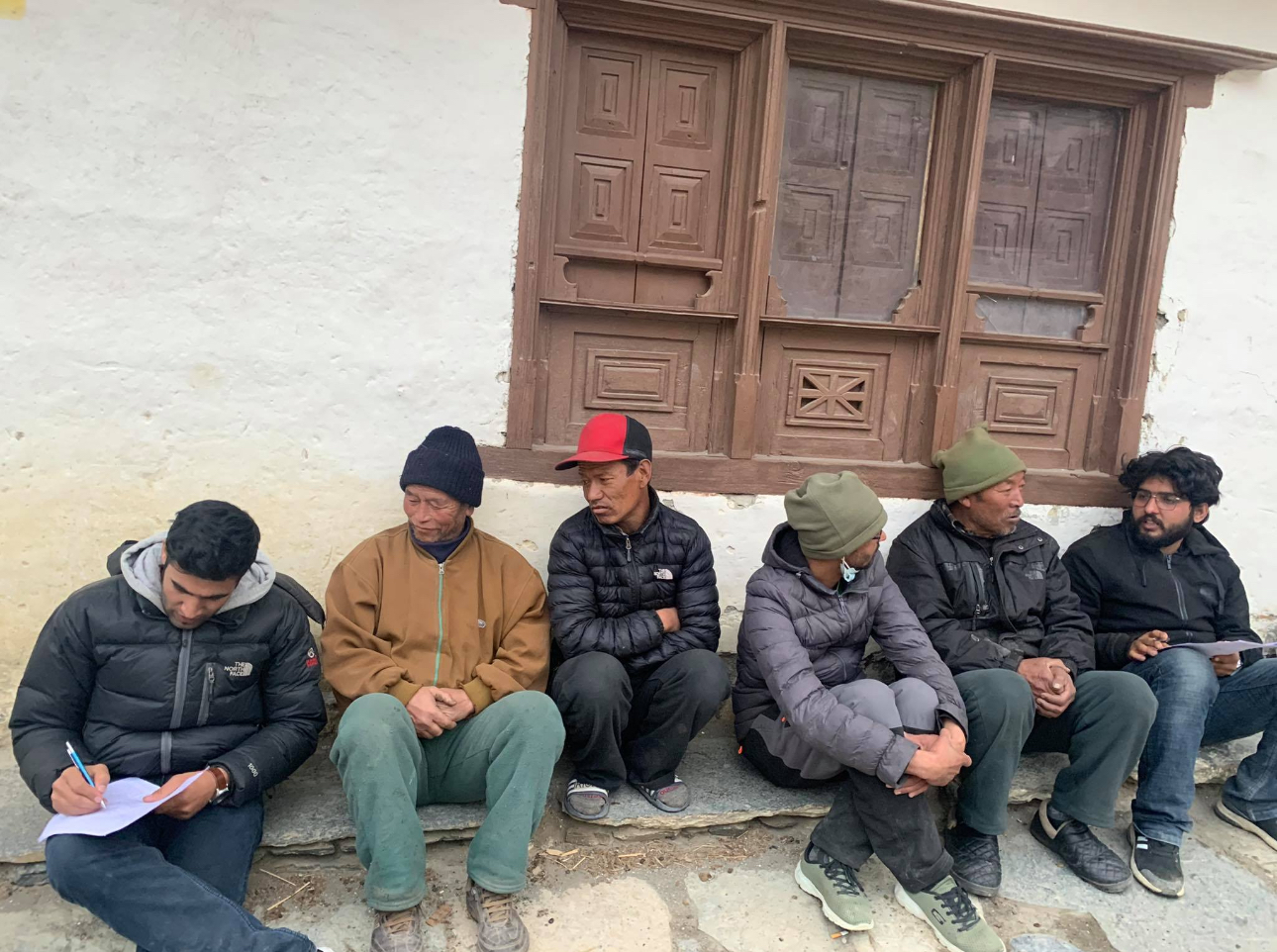Slaughter at Gadhimai: Can we stop this Cruelty?

By Dr. Jagan Karki
The Gadhimai festival, held every five years in southeastern Nepal, has drawn sharp criticism for its mass animal sacrifices, often labeled as “the world’s bloodiest festival.” The Gadhimai festival, held at the Gadhimai Temple in Bariyarpur, Bara District, Nepal, east of Kalaiya and near the Indo-Nepal border, is famous for its extensive animal sacrifices. Devotees present water buffalo, pigs, goats, chickens, and pigeons to honor Gadhimai, the goddess of power. They also offer coconuts, sweets, and red-colored clothes. This festival is regarded as one of the world’s largest animal sacrifice events. While millions from Nepal and India participate in this event, Critics highlight a double standard, noting that similar sacrifices in other religions receive less scrutiny.
However, the festival is undergoing reform, with increased awareness and legal bans in Nepal significantly reducing the number of participants engaging in animal slaughter.
Misrepresentation of Hinduism
The Western media often portrays Gadhimai as a quintessential Hindu festival, a characterisation that does a disservice to the vast majority of Hindus who revere non-violence as a core tenet of their faith. Hinduism and Buddhism are major advocates for peace, humanity, and the sanctity of all living beings. For most Hindus, the idea of animal sacrifice is incompatible with their beliefs. Many abstain from eating meat altogether, dedicating their lives to serving others and protecting animals. Hindus worship animals as divine symbols in various festivals: cows are revered as sacred, snakes are feted during Nag Panchami, and dogs, crows, and mice are also celebrated in different rituals. Reducing this complex and compassionate worldview to the actions of one sect during a single festival unfairly paints the entire religion as being complicit in practices many of its adherents reject.
A Tradition Under Scrutiny
The Gadhimai festival has faced intense scrutiny from activists and conservationists in Nepal and abroad. In 2009, international outcry led to debates over the ethicality and necessity of such a practice in modern times. French actress and
animal rights advocate Brigitte Bardot called the animal killings at the festival “violent, cruel, and inhumane.” Legal challenges have also emerged, with the Supreme Court of India in 2014 restricting the transport of animals for the festival. Similarly, Nepal’s Supreme Court ordered a gradual phasing out of animal sacrifices in 2016, but the ruling has seen limited implementation. Despite assurances from temple caretakers in 2015 that future iterations would be “free from bloodshed,” the 2019 festival witnessed
continued sacrifices, prompting fresh legal battles.
Balancing Tradition and Progress
The persistence of animal sacrifices at Gadhimai highlights the tension between tradition and society’s evolving values. Some sociologists argue that it is more of a cultural practice than a religious one and is not representative of Hinduism. Rooted in ancient traditions that may have aimed to provide protein for warriors and the hungry, the practice evolved into a
misunderstood cultural ritual. The legend associated with the festival also does not align with Hindu ideology. One popular belief is that the festival began when feudal lord Bhagwan Chaudhary had a dream in which he was instructed to offer a blood sacrifice to the goddess Gadhimai in order to secure his release from jail. This practice later evolved into a tradition.
For many devotees, the festival is a deeply spiritual act of faith and gratitude. However, it also raises ethical questions about the treatment of animals and the broader implications for how faith-based practices align with modern understandings of compassion and non-violence. Critics argue that the government’s reluctance to enforce the apex Court’s ruling reflects a failure to balance religious sentiment with the moral imperative to prevent cruelty. While respecting cultural traditions is important, it is equally essential to engage in dialogue about how those traditions can evolve in a way that honors both faith and ethical progress.
Moving Forward
The Gadhimai festival serves as a stark reminder of the diversity within Hindu practices and the challenges of reconciling ancient rituals with contemporary values. It is crucial to differentiate between the actions of one sect and the broader philosophy of Hinduism, which, at its heart, preaches peace, non-violence, and the interconnectedness of all life. As the debate over Gadhimai continues, it is an opportunity for reflection—not just for practitioners of the festival but for society at large. How can we preserve cultural heritage while embracing a more compassionate and humane future? The answer lies in open dialogue, education, and a commitment to honoring the essence of faith without compromising the well-being of living beings.


















Facebook Comments